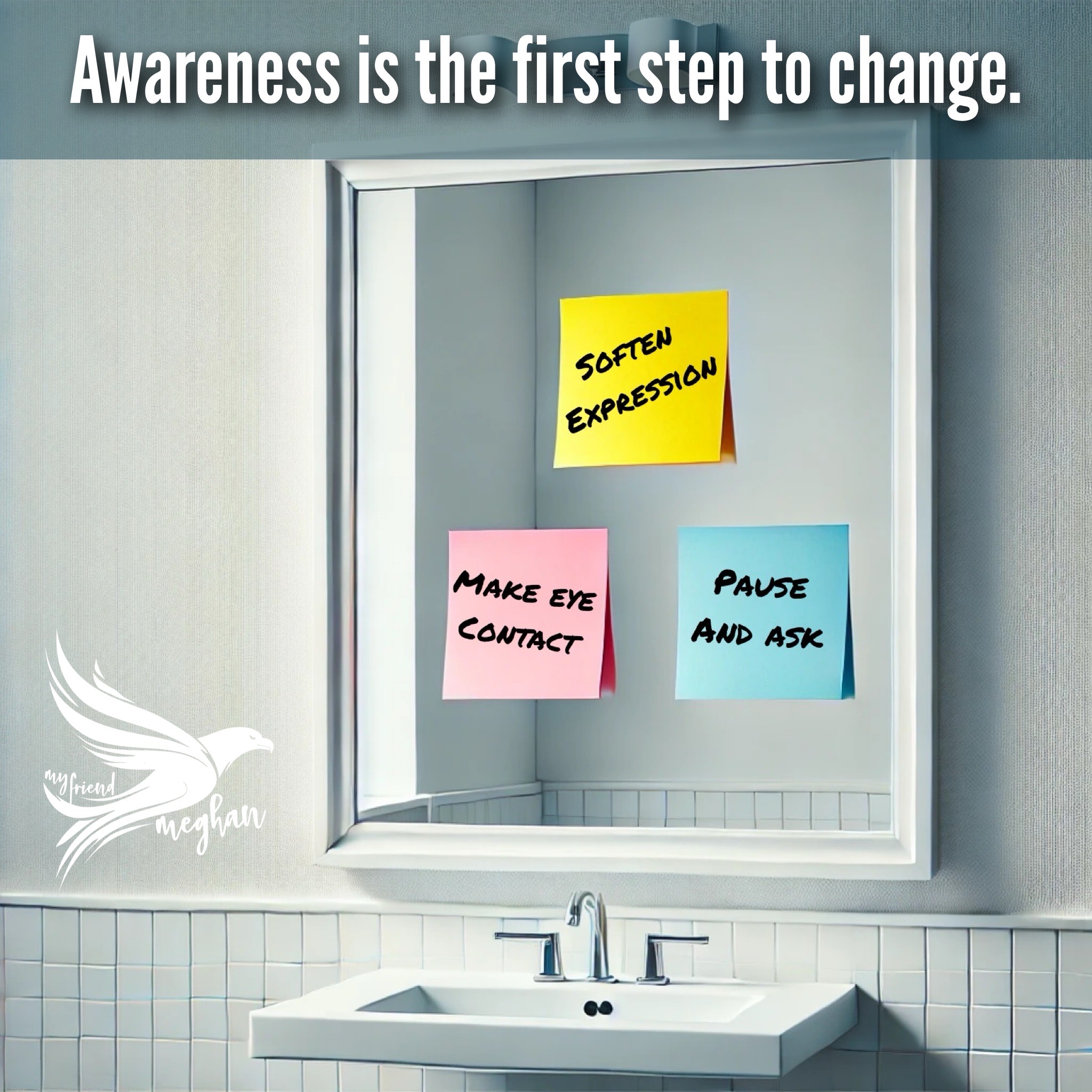You can’t shift what you don’t own. And in the world of communication, the truth of that statement runs deep. We’ve all had moments where someone misunderstood us, where an interaction left us scratching our heads, or where something just didn’t land the way we intended. Often, it’s tempting to chalk it up to the other person—but empowered communication starts by looking inward. One of the most liberating things you can do is learn to recognize your own communication quirks and patterns, especially the ones that might be undermining your connection with others.
This self-awareness is at the heart of the 8th key of Empowered Communication: know your own weaknesses. When we acknowledge the areas where our natural tendencies (or neurodivergent traits) might lead to misunderstanding, we gain the ability to work with—not against—them. Sometimes that means actively working to shift the pattern. Other times, it simply means giving others context so they can interpret us more accurately. Either way, awareness becomes the bridge to more authentic and effective connection.
How Communication Quirks Cause Disconnect
It’s not always about what we say—it’s how we say it, how we look while we say it, or what we don’t say at all. You may speak with a monotone voice that unintentionally communicates disinterest. Or perhaps you avoid eye contact, and others interpret that as evasiveness. Maybe your tendency is to jump in and over-explain—what some call “info dumping”—and it overwhelms or confuses the listener.
These kinds of communication patterns aren’t inherently wrong. They’re often just default settings. But when we remain unaware of how they impact others, they can become barriers to understanding and connection.
Turning Weakness Into Clarity
Sometimes, the path forward isn’t about changing the behavior but naming it. For example, if you know you have a “serious” resting face and someone seems nervous around you, calling attention to it with warmth or humor can instantly ease the tension. Rather than being seen as cold or judgmental, your self-awareness creates connection.
In another case, if you have a tendency to over-explain when given feedback, simply telling the other person, “I’m not disagreeing—I’m just trying to understand what you’re pointing to,” can completely shift the dynamic. You’re not defending—you’re processing. But the key is in learning that your pattern can be misread and adjusting accordingly.
One of the most powerful things about naming these patterns is that it gives others permission to see the humanity behind them. It also encourages others to do the same—to reflect on their own quirks with curiosity rather than shame.
Building Self-Awareness Through Reflection
This kind of self-knowledge doesn’t usually arrive overnight. It often shows up in hindsight, after a moment of tension or a piece of feedback that doesn’t quite make sense until you dig a little deeper. But when we view those moments as invitations instead of indictments, they become opportunities to build stronger, more honest relationships.
And the more aware we become of our own communication challenges, the more grace we tend to offer others. What once felt like an offense now feels like a personality quirk. What once triggered us becomes something we can chuckle about and adapt to. This, too, is the work of healthy boundaries—understanding what’s ours and what isn’t, and owning our role in creating connection.
Actionable Insights
- Identify your communication quirks Reflect on recurring feedback or moments of misunderstanding. What patterns show up consistently in your interactions?
- Name the behavior in the moment When appropriate, give others a heads-up about your communication tendencies so they know how to interpret you more accurately.
- Use humor and humility to create connection Don’t be afraid to laugh at your quirks—it diffuses tension and deepens rapport.
- Offer others the same grace When someone’s communication style rubs you the wrong way, ask yourself: Could this be a quirk instead of a character flaw?
Know Your Own Weaknesses is the 8th of the 13 Keys for Empowered Communication.
The 13 Keys are:
- You Are Responsible for the Energy You Bring
- Power vs. Force
- Energy as Currency
- Healthy Boundaries and Letting Go
- Release the Illusion of Control
- Release and Transmute Energy
- The Role of Forgiveness in Energy Release
- Know Your Own Weaknesses
- The Importance of Self-Validation
- Thought Patterns Shape Reality
- Manifestation and Mental Focus
- Trust the Timing of Others’ Journeys
- The Art of Non-Reaction


Leave a Reply